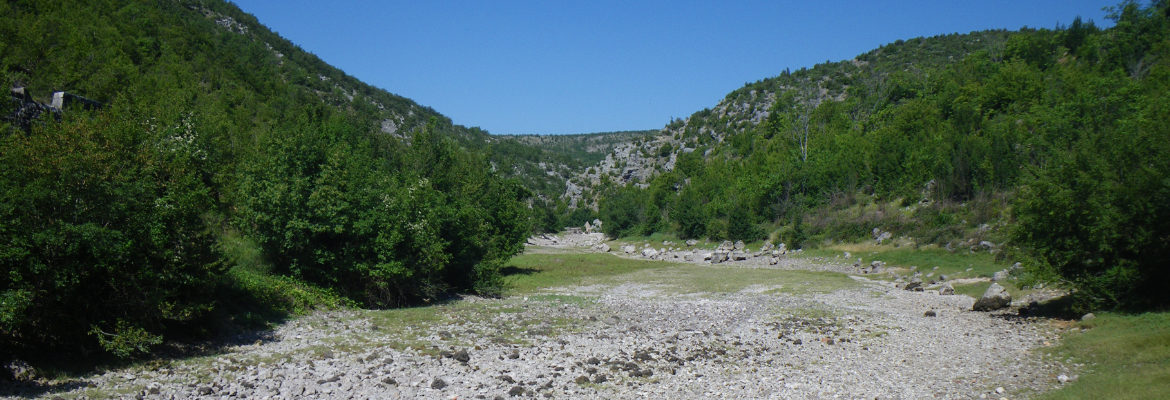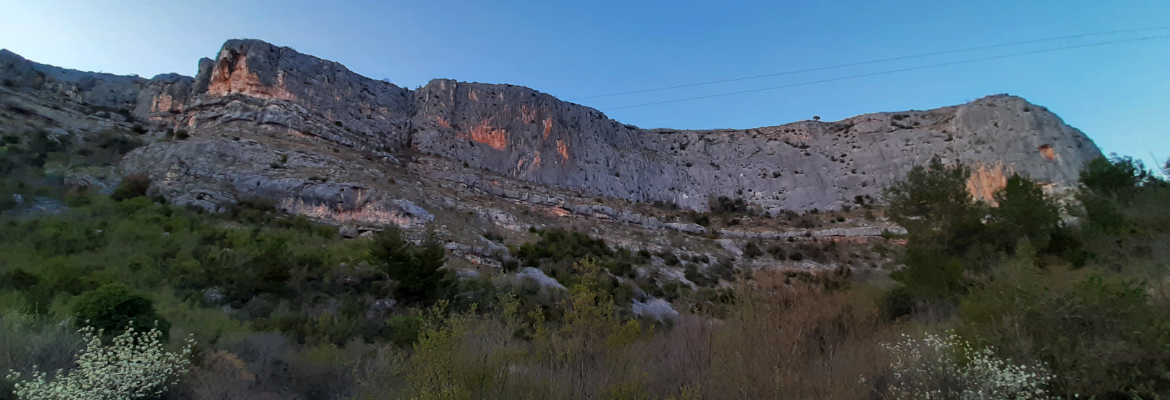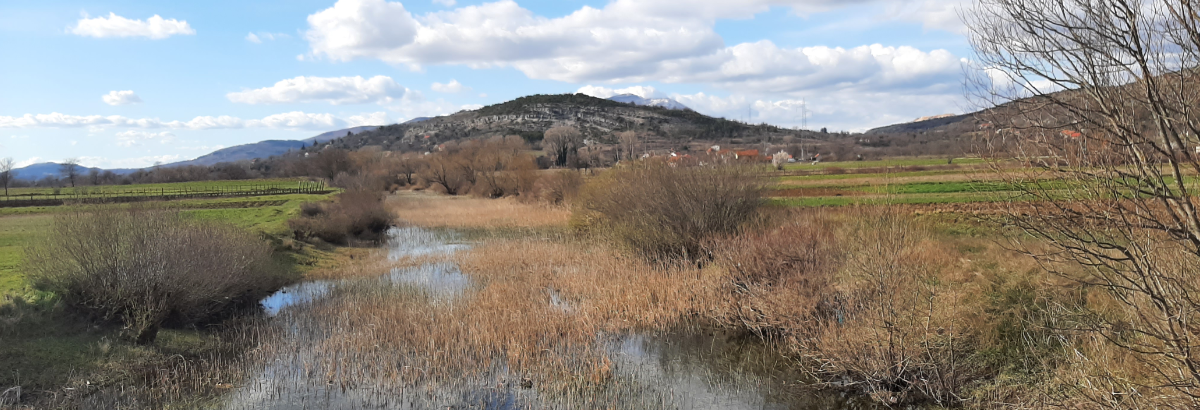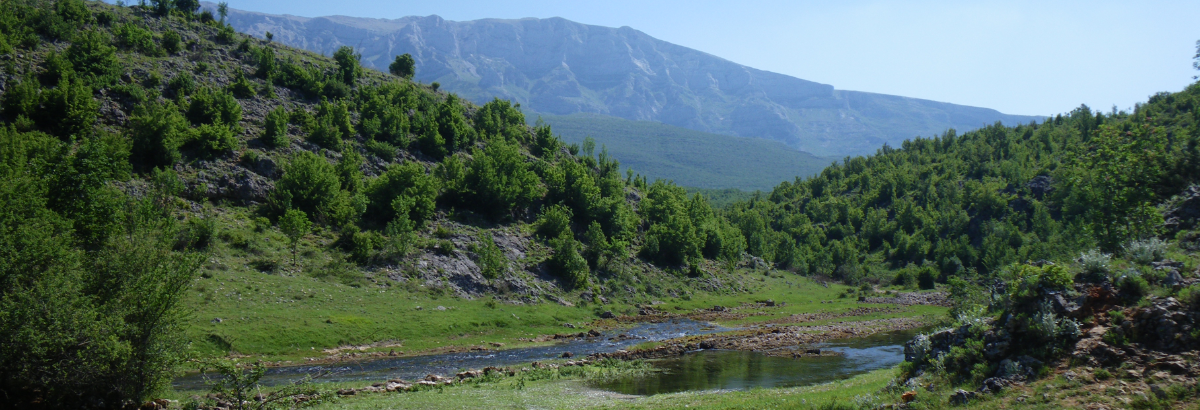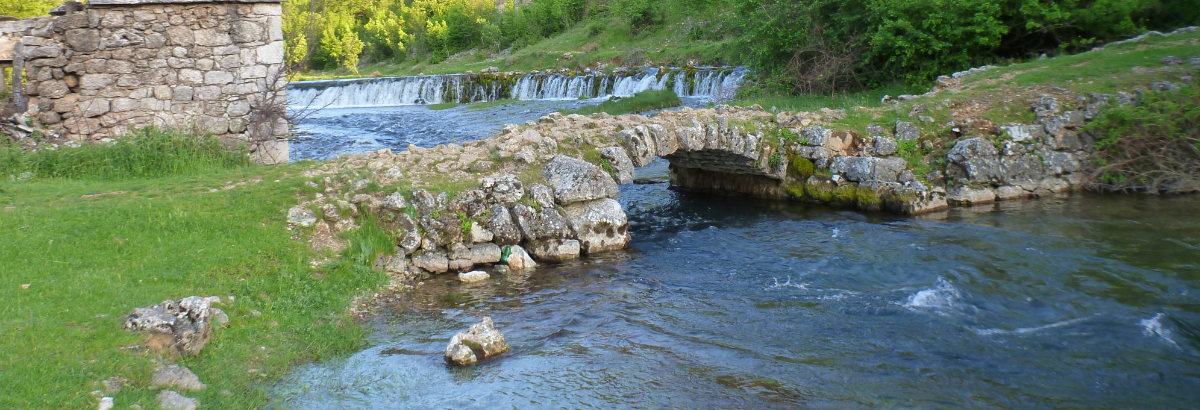Scientific Training and Research Stay in Germany (DAAD)
As part of a scholarship funded by the German Academic Exchange Service (DAAD), Fran Rebrina spent four months undertaking scientific training at the University of Kaiserslautern–Landau (RPTU) in Germany. During his stay, he was hosted and mentored by Dr. Jens Schirmel, an external collaborator on the DinDRY project. During the training, Fran conducted research on the spatio-temporal dynamics of orthopteran (Orthoptera) communities in urban environments, applying novel methods for species detection based on acoustic recordings collected in situ using autonomous recording devices (AudioMoth). These non-invasive methods are applicable across a wide range of ecological studies for analysing community composition and relative species activity. In addition, he received training in the identification of harvestmen (Opiliones), an important indicator group of arthropods, to species level at the State Museum of Natural History Karlsruhe (Germany), under the mentorship of Dr. Tobias Bauer.
.png)
![]()
Laboratory work
During the winter and spring, Nera Vuić worked in the laboratory on the isolation of whole genomic DNA from samples of indicator species of invertebrates from intermittent rivers. Among the analyzed species were the ground beetles Carabus granulatus and Pterostichus anthracinus, as well as the caddisfly species Stenophylax nycterobius, which were selected as indicators of the condition and dynamics of intermittent rivers.
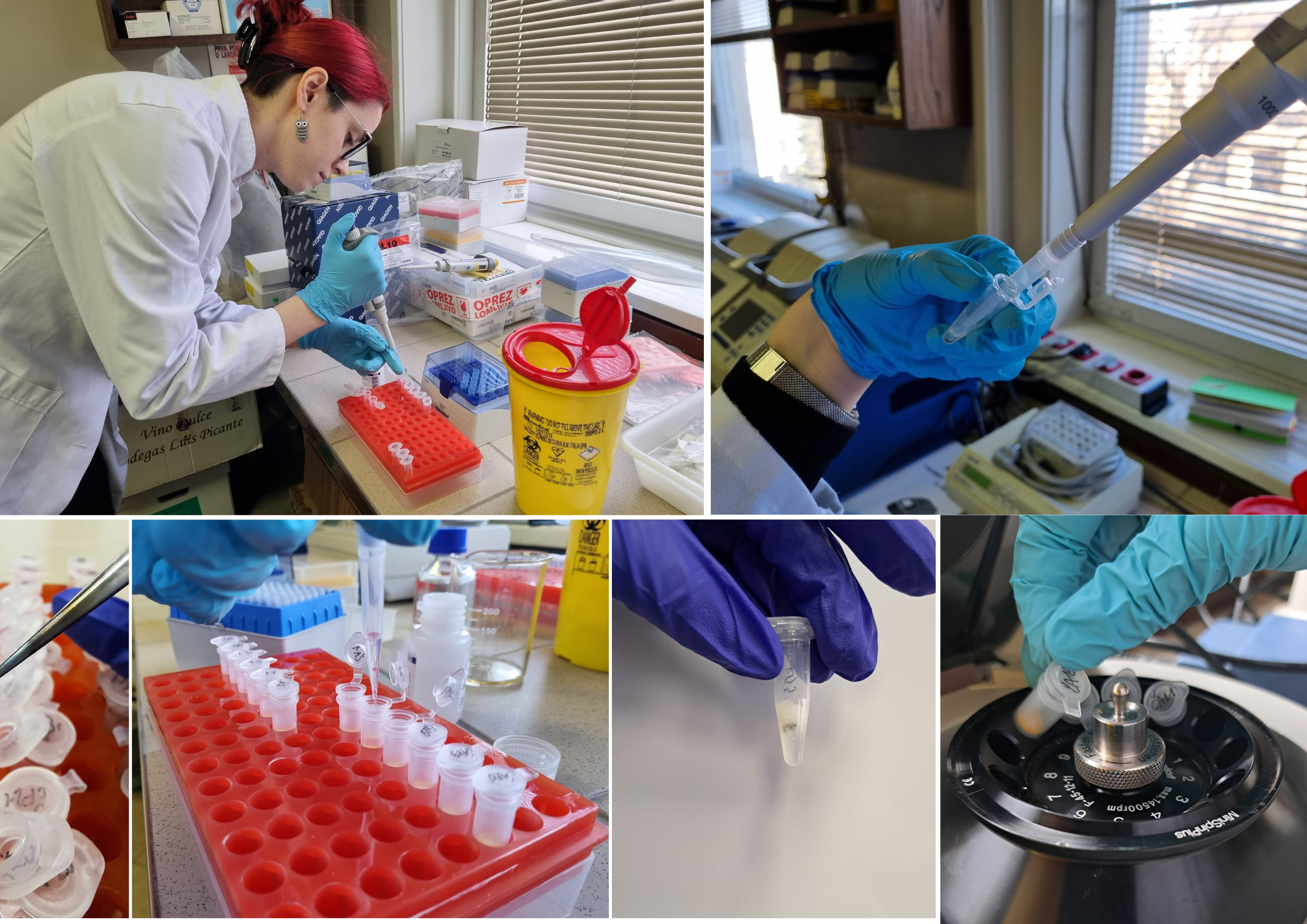
![]()
Field research - Collection of samples for molecular analysis
In the spring of 2025, project team members Nera Vuić and Zuzana Redžović studied the lotic phase of intermittent rivers. Trichoptera larvae were collected in the field, and pitfall traps were put up for soil fauna along the Čikola and Krčić rivers. The traps caught several species of ground beetles (Carabidae), an insect family belonging to the order Coleoptera. Aquatic and terrestrial invertebrate samples were collected with the goal of isolating whole genomic DNA and amplifying DNA barcodes of indicator species in order to determine the importance of dispersal in relation to the local survival of specialists during the recolonization of intermittent rivers.

![]()
Project team members Andreja Brigić, Marina Vilenica and Zuzana Redžović, together with student Mihaela Kristina Mlinarić, participated in the 7th Slovenian Entomological Symposium with International Attendance in the city of Izola, Slovenia, from January 31 to February 1, 2025. Andreja Brigić presented the results of part of the DinDRY project research with an oral presentation entitled "Seasonal dynamics and colonization of dry riverbeds by terrestrial invertebrates in Mediterranean region". Marina Vilenica presented a poster entitled "Caddisfly assemblages in karst intermittent rivers in the Mediterranean" on diversity of caddisfly assemblages and their habitat preferences in karst intermittent rivers, and student Mihaela Kristina Mlinarić presented a poster entitled "Extinction notice: conservation status and future prospects for Carabus clatratus auraniensis in Croatia" in which she highlighted the importance of habitat restoration and conservation strategies to prevent the complete extinction of this endangered beetle. Zuzana Redžović also participated in the symposium with a poster entitled "Biochemical responses of benthic macroinvertebrate species Micropterna nycterobia (Trichoptera) in an anthropogenically impacted mediterranean karst intermittent river", where she reported on levels of the enzymatic biomarker in caddisfly, as important tool in biomonitoring programmes.
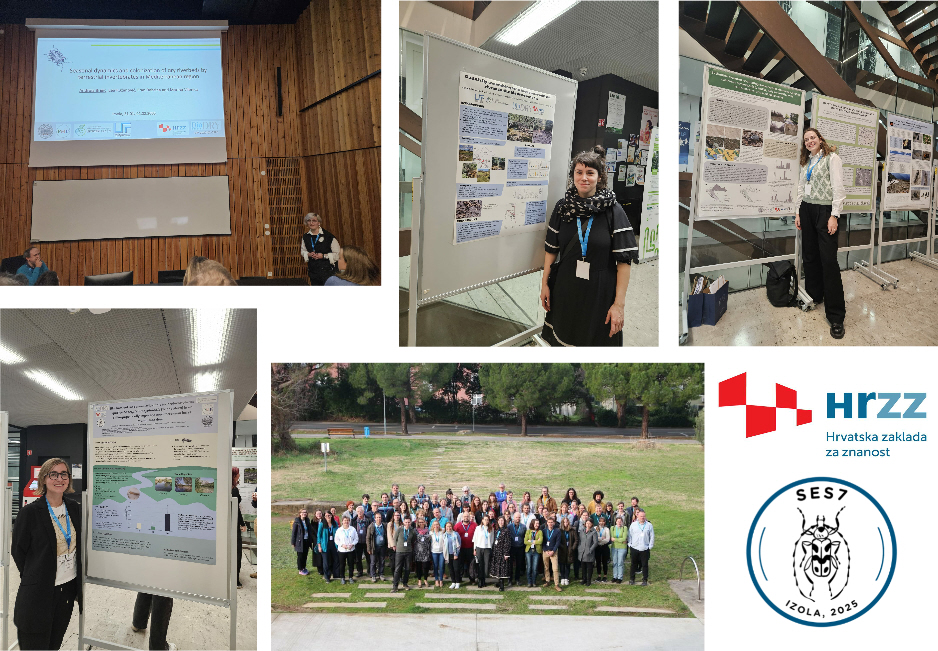
![]()
Lea recently returned from her MOBDOK mobility, funded by the Croatian Science Foundation. From January 14th to February 14th, she identified spiders at the University of Kaiserslautern-Landau (RPTU) under the supervision of Martin Entling. She examined 1 588 spider specimens collected from riparian zones, uplands, temporary pools, and dry riverbeds of intermittent rivers. Each specimen was identified to the family, genus, or species level, depending on its life stage and condition, with sex and life stage also recorded. Her work revealed species new to Croatia, with a total of 23 spider families identified, most specimens belonging to the Lycosidae and Gnaphosidae families.
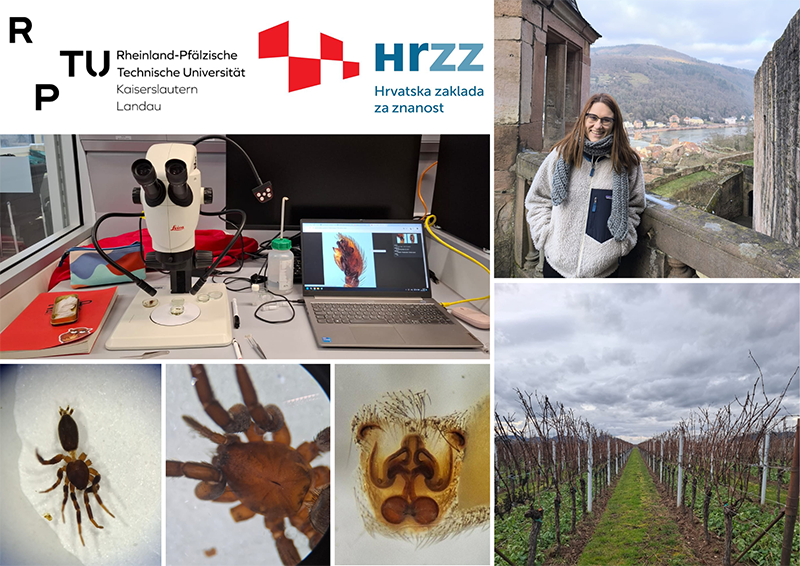
![]()
Lea awarded HRZZ grant for research mobility
PhD student Lea, part of the DinDRY project, applied for the “Outbound Mobility of Research Assistants” (MOBDOK-2023) program by the Croatian Science Foundation. Her proposal was accepted last week, and as part of the project, Lea will travel to the University of Kaiserslautern-Landau (RPTU) in Germany in January and February 2025. There, she will continue her research on spiders collected from pitfall traps in four intermittent rivers.
Congratulations to Lea and all the other recipients!
![]()
The new team member is PhD student Nera Vuić
Nera completed her biology studies in Osijek. Her previous scientific research has primarily focused on freshwater ecosystems, with a significant emphasis on monitoring the ichthyofauna of floodplains and studying parasitic nematodes (Nematoda). She has also explored the impact of their parasitism on fish condition by analyzing length-weight relationships and condition factors.
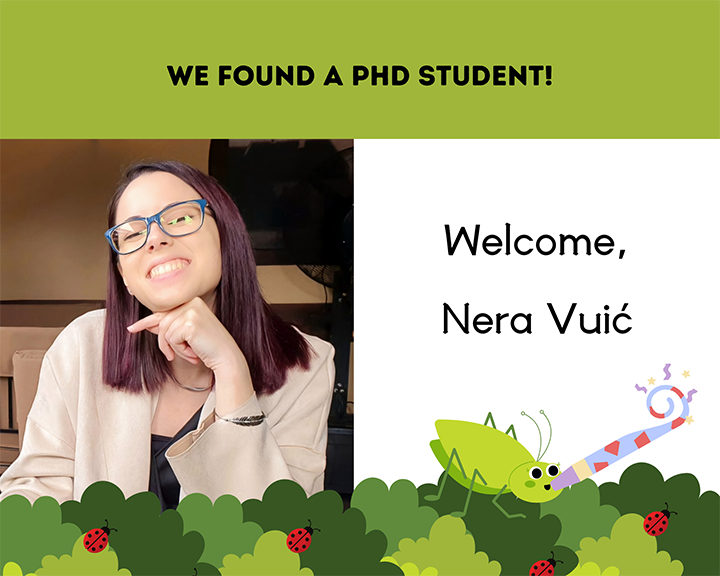
![]()
Field research of the lentic and dry phase
Project team members Fran Rebrina, Lea Ružanović, Iva Čupić and Zuzana Redžović carried out research on the lentic and dry phases of intermittent rivers during July. PhD student Manuel Pinilla Rosa from the University of Barcelona accompanied them in the field as a guest. Environmental parameters were measured on site, sediment and soil samples were taken and pitfall traps were set up for the soil fauna. Aquatic and terrestrial invertebrates were collected with the aim of measuring biomarkers as indicators of multiple environmental stressors (desiccation and anthropogenic influences) that affect the organisms.
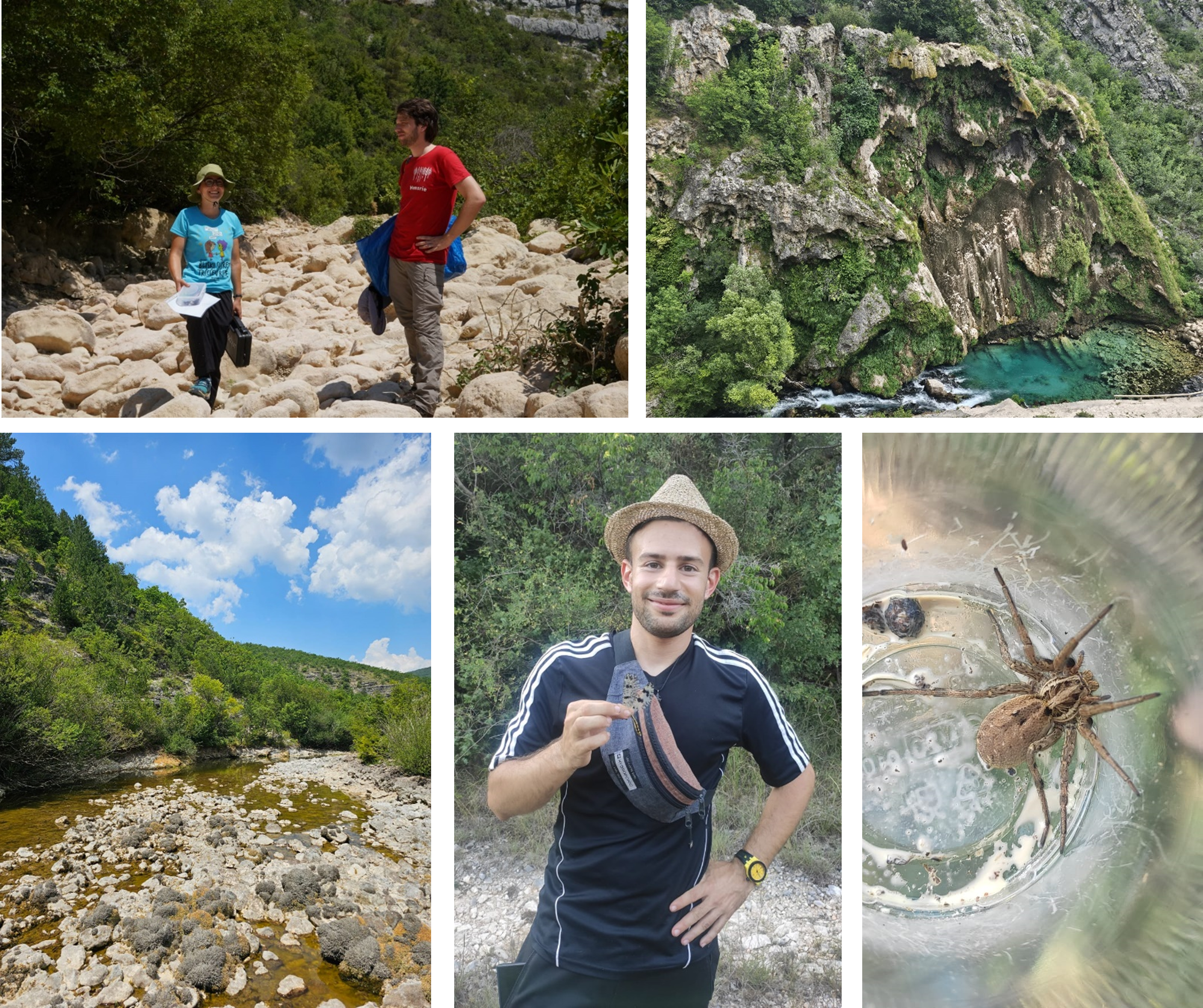
![]()
Field research- Sample collection
At the beginning of April, team members Marina Vilenica, Zuzana Redžović, Fran Rebrina, and Lea Ružanović completed their fieldwork mission. They collected samples of invertebrates from intermittent rivers that are currently in the lotic phase. They also gathered soil and water samples and measured key environmental factors.
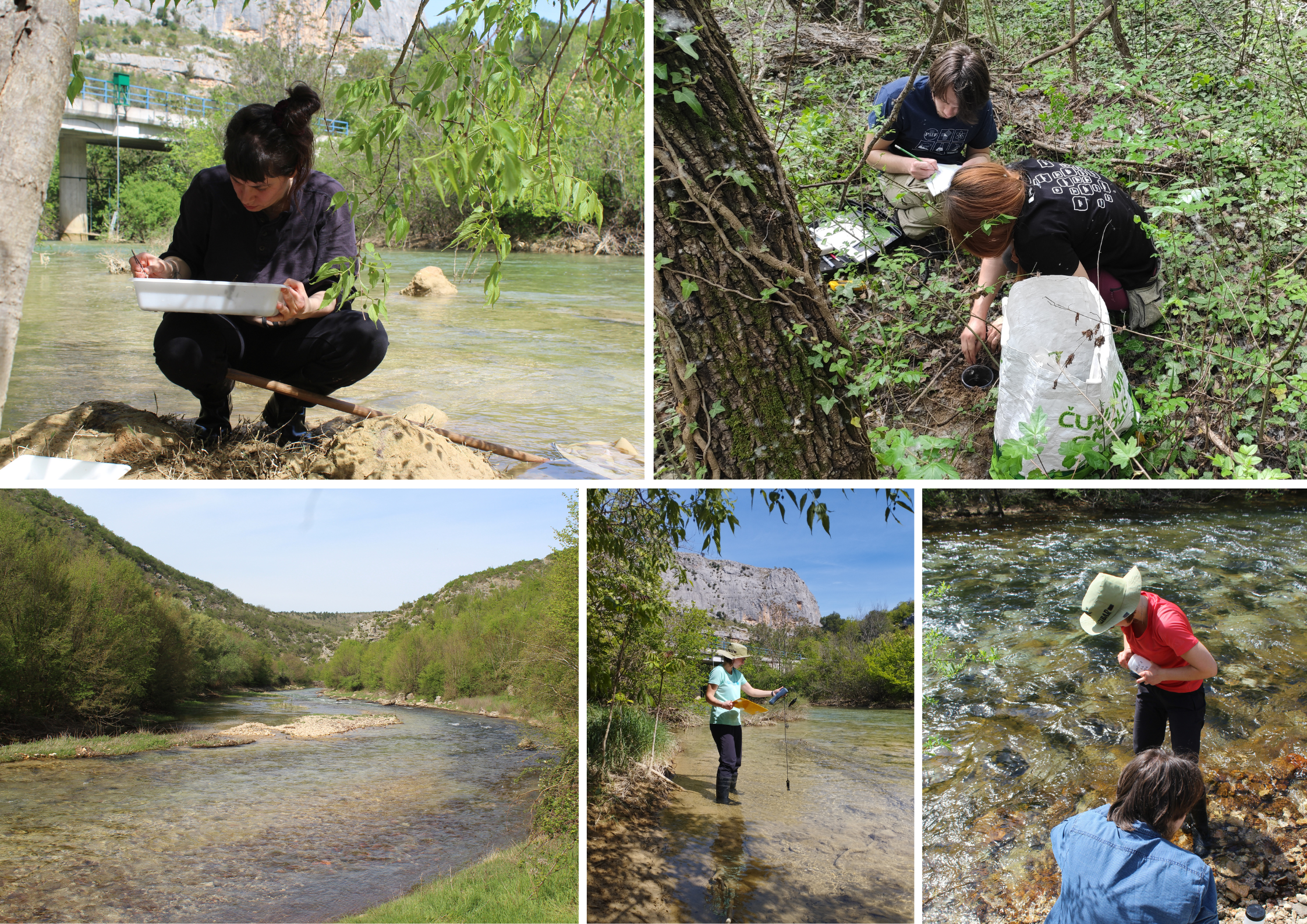
![]()
The new member of our project team is a postdoc Zuzana Redžović, PhD
Her current scientific interest includes the study of environmental stressors in freshwater ecosystems, especially in groundwater-connected ecosystems and amphipod assemblages. Also, her narrower field of research includes the bioaccumulation of metals in organisms and physiological biomarkers, such as biomarkers of the organism's antioxidant defense and exposure to xenobiotics and the adenylate energy charge.
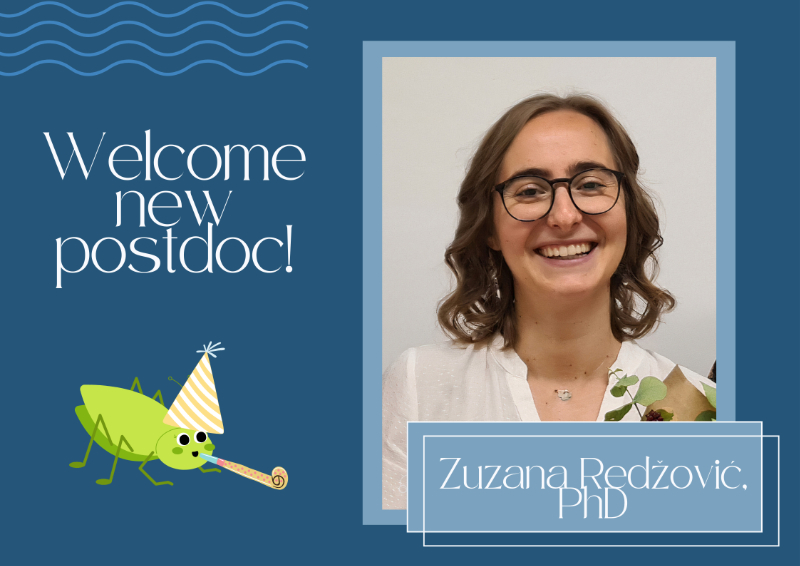
![]()
Annual award of the Faculty of Science for outstanding scientific work
On June the 6th 2023, at the ceremonial session of the Faculty of Science, University of Zagreb, a member of our research team - Fran Rebrina, PhD, received an annual award for outstanding scientific work for postdoctoral researchers. Our sincere congratulations and wishes for continued success in the future!
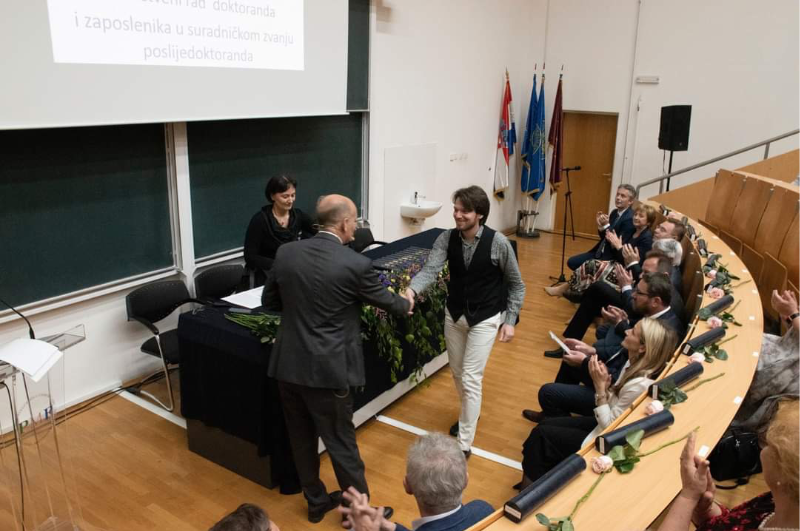
![]()
Spider taxonomy & field methodologies
Our PhD student, Lea, traveled to Crete to participate in a spider taxonomy and field methods training program hosted by CETAF-DEST (Distributed European School of Taxonomy) under the guidance of Dr. Maria Chatzaki, Dr. Jeremy Miller, Dr. Andres Rivera, and Dr. Iasmi Stathi. During the event, Lea and other participants gained knowledge on field techniques applied for spider sampling and classification at the family and species levels, and had the opportunity to network with several spider research experts.
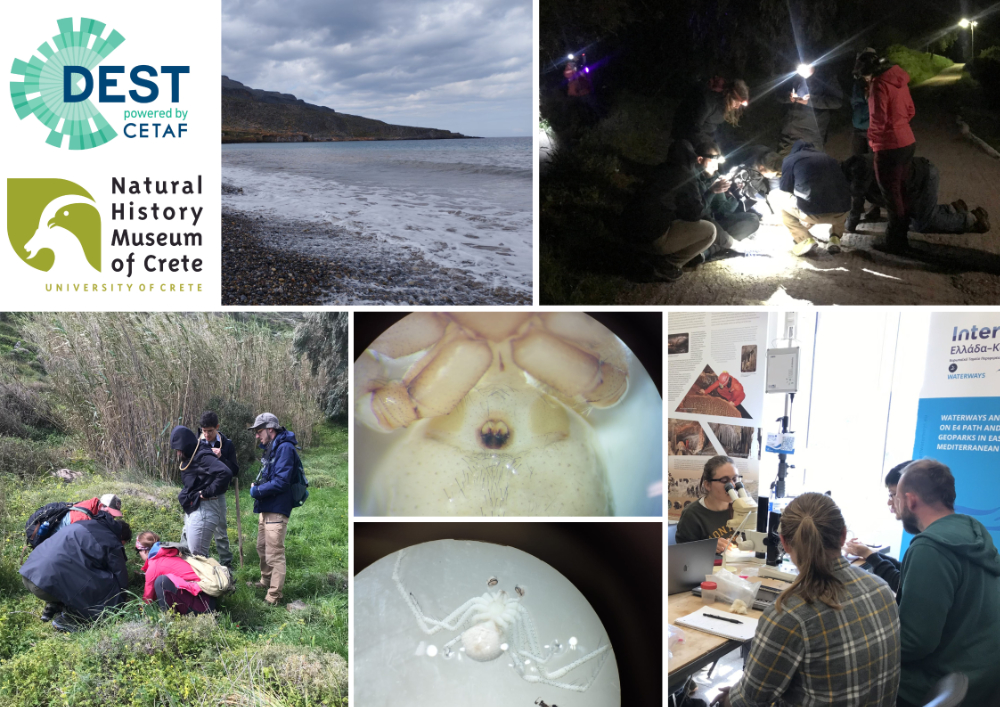
![]()
training
Our PhD student, Lea Ružanović visited Rheinland-Pfälzische Technische Universität Kaiserslautern-Landau in Germany. She identified the spiders collected by pitfall traps set up along the Krčić River in 2021 with external collaborator on the DinDRY project, prof. dr. Martin Entling. She also held a lecture where she presented the DinDRY project to doctoral students of the University.
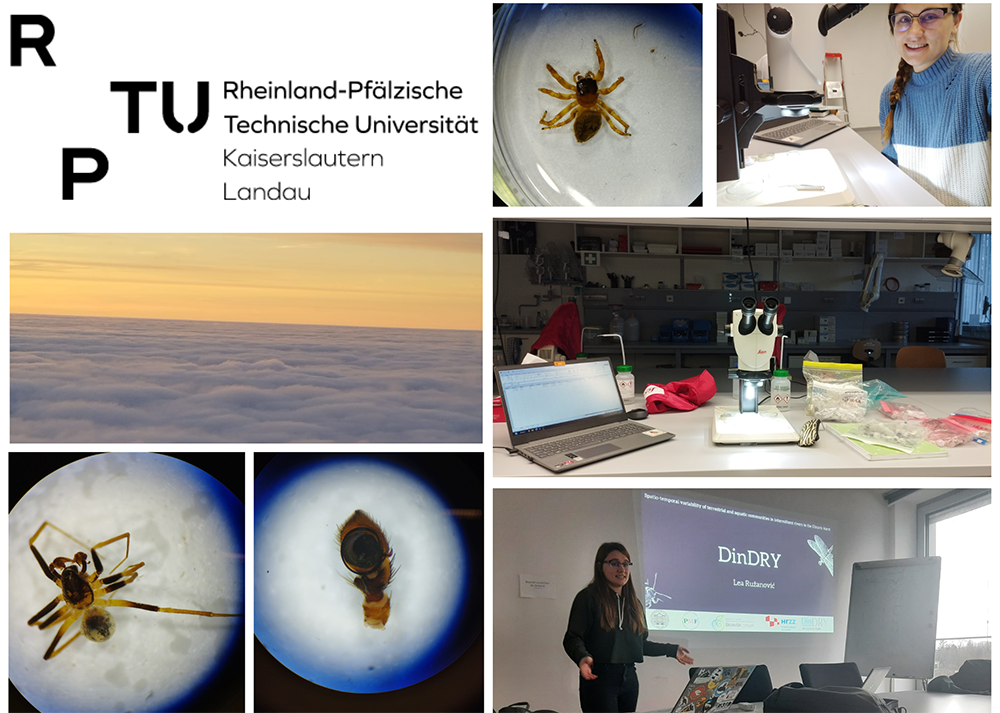
![]()
FIELD RESEARCH – COLLECTING SOIL SAMPLES AND ABIOTIC PARAMETERS
In July 2022, during the dry phase, we collected soil samples from dry riverbeds and the surrounding riparian and karst habitats at the Krčić, Čikola, Guduča and Miljašić Jaruga rivers. The samples will be used for heavy metal and pesticide analysis, to investigate the effect of human activities on fragile IRES ecosystems.
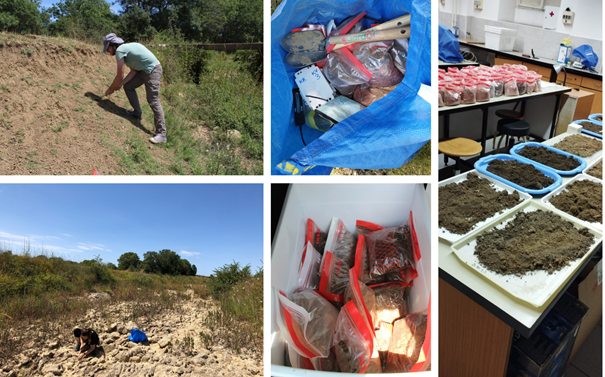
We have collected data loggers at all four intermittent rivers included in this project. The loggers measured air temperature and humidity, soil temperature and moisture every two hours for the whole year, from July 2021 until July 2022.

![]()
SCIENTIFIC TRAINING
Our PhD student, Lea Ružanović went to the University of Koblenz-Landau in February 2022. She attended a spider course organized by Prof. Dr. Martin Entling and worked on the spider samples collected during the first year of the DinDRY project.
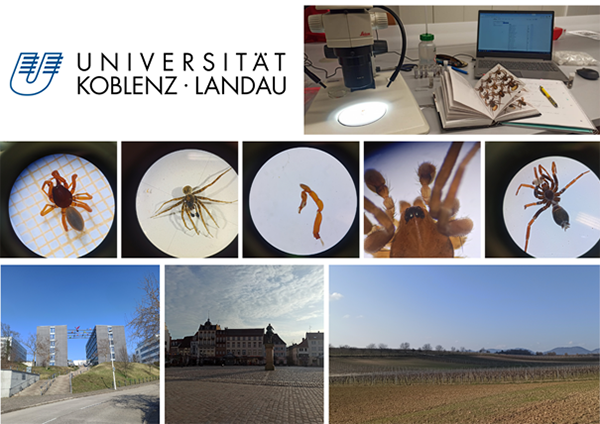
![]()
FIELD RESEARCH – MACROZOOBENTHOS SAMPLING
Despite the super-cold and strong wind, the aquatic macroinvertebrates of the second lotic phase were successfully collected at the beginning of March 2022 at four karst intermittent rivers. At each site, we also measured physico-chemical water parameters. The lowest measured water temperature was 5,9°C!!! Not even a couple of pairs of gloves could stop the cold. 😊
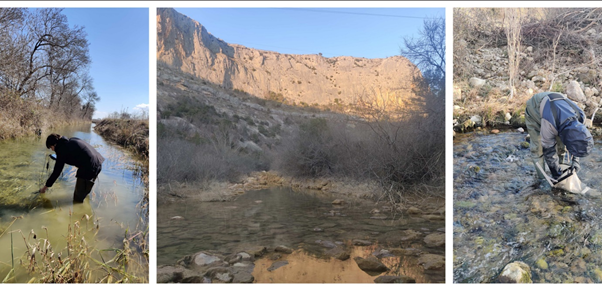
![]()
Most of the study sites at the studied Dinaric karst intermittent rivers dried out during the summer (Fig. 1). At the end of July, we have placed windowtraps (Fig. 2) into the dry river bed of the Krčić River. With this research we intend to obtain novel insights into dispersal patterns and dynamics of aquatic and terrestrial taxa in karstic IRES ecosystems. Now the sorting of the collected material begins...
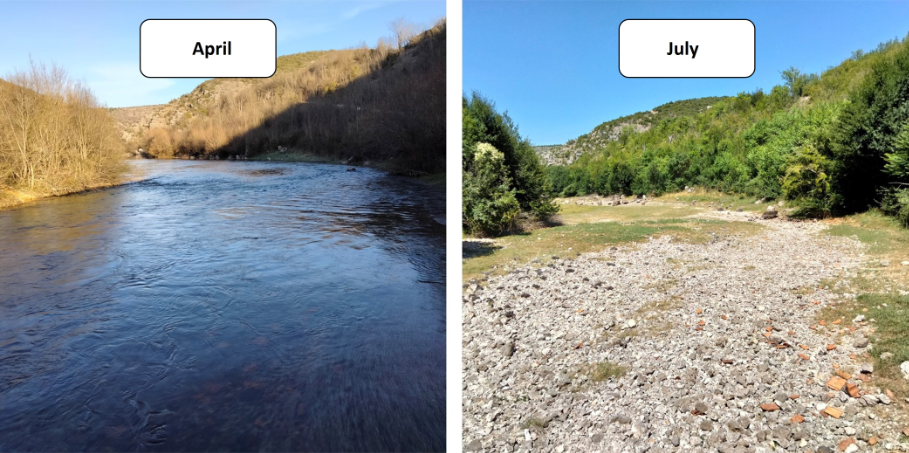
Figure 1. The change is hydrological characteristics of the Krčić River during the spring and summer 2021.
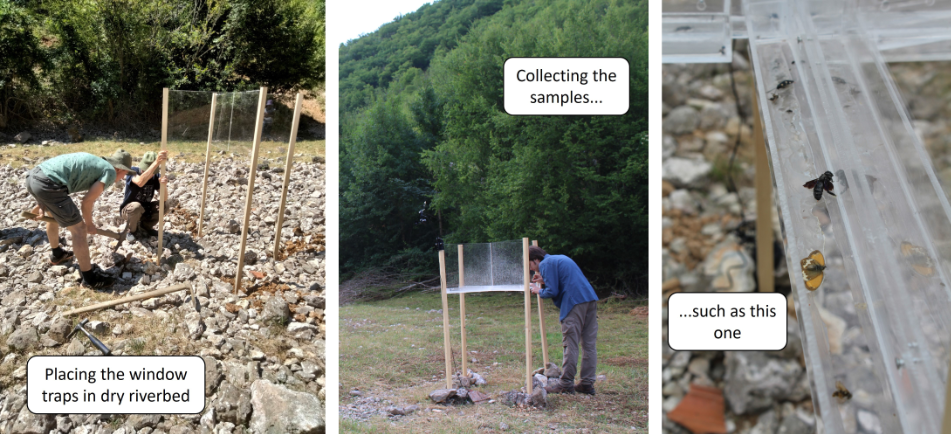
Figure 2. Placing the windowtraps in dry riverbed of the Krčić River in July 2021, and sampling of the collected macroinvertebrates.
First fieldtrip done – aquatic and terrestrial macroinvertebrate sampling
In the middle of April the weather forecast was finally on our side, and we managed to conduct the fieldrip in Dalmatia where we sampled macroinvertebrate fauna of intermittent streams of the Dinaric karst. Together with aquatic macroinvertebrate sampling, we measured water physico-chemical properties and we took water samples for analyses in the laboratory. Also, we set the pitfall traps used for terrestrial macroinvertebrates sampling.
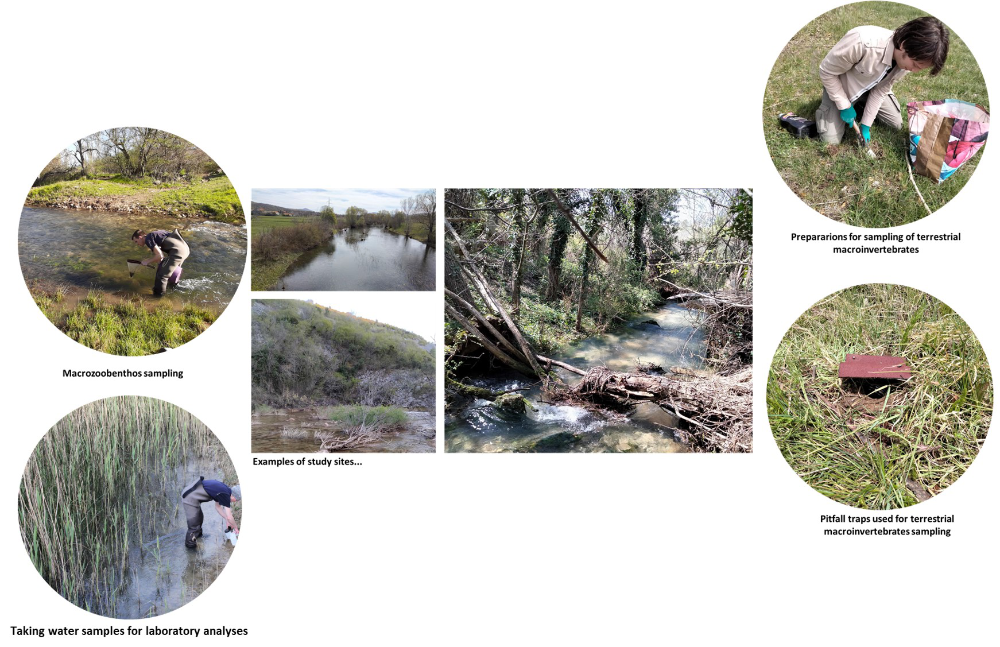
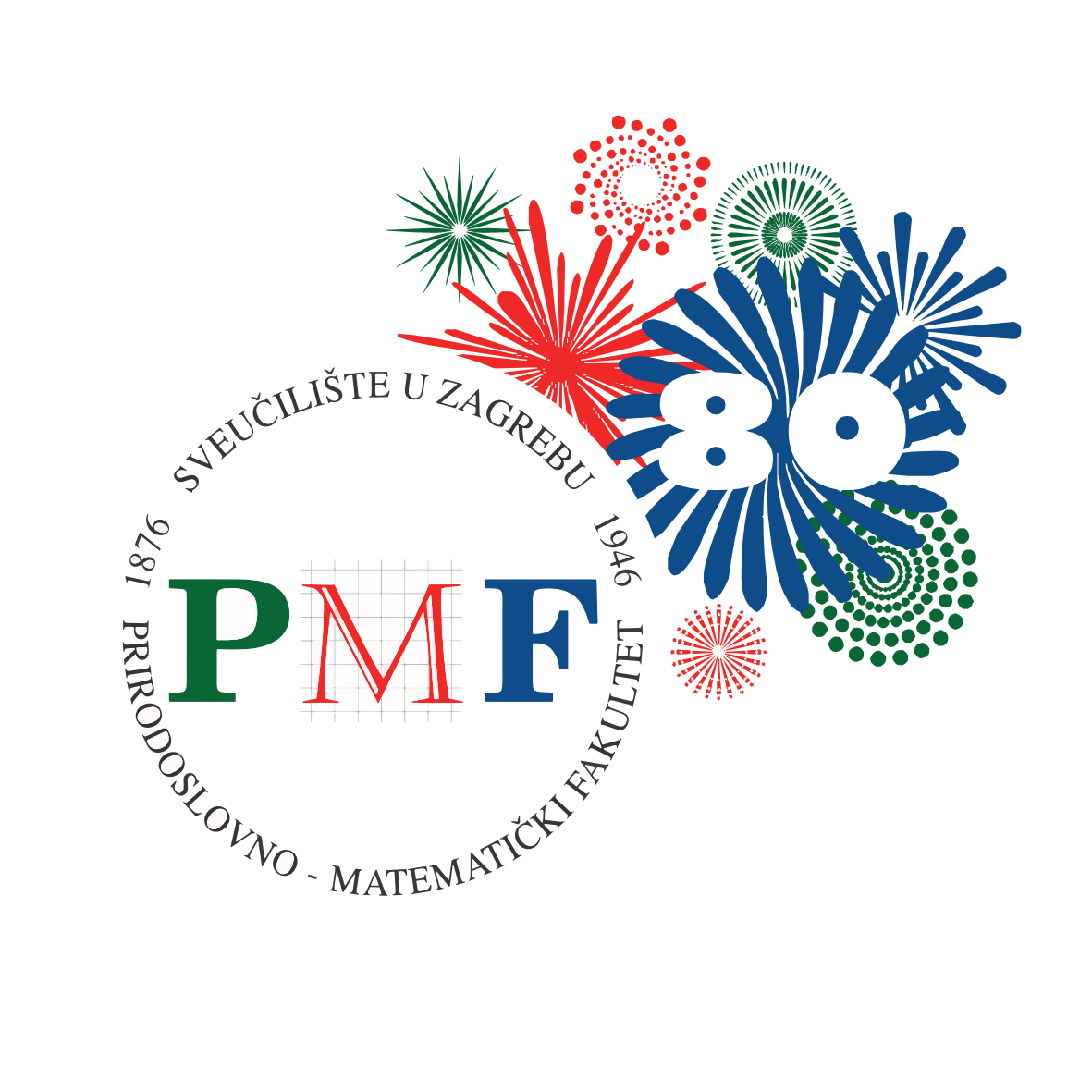
 Pristupačnost
Pristupačnost